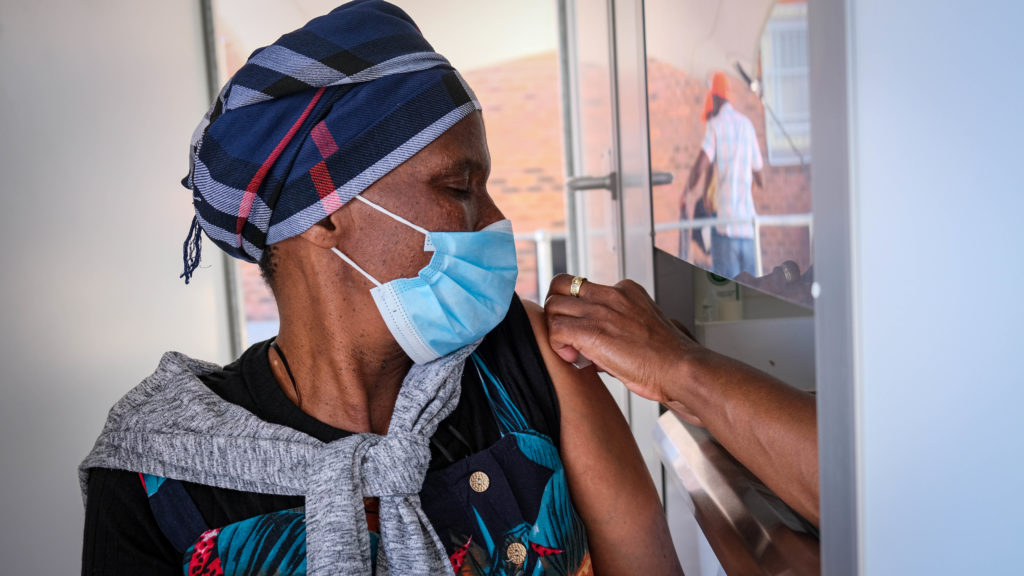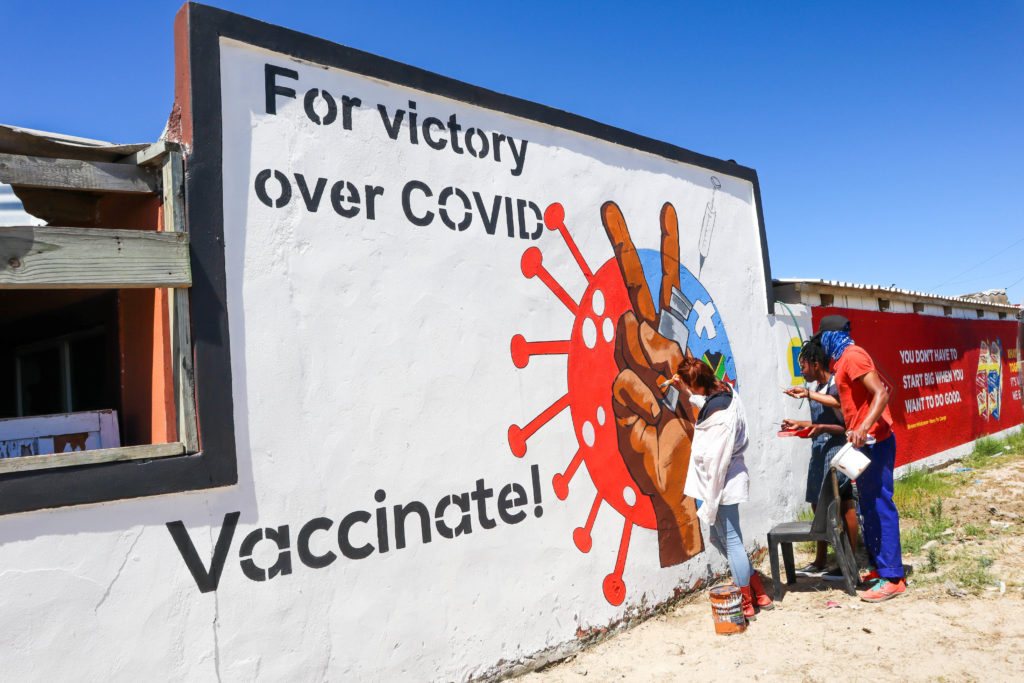CAPE TOWN: A vaccination support programme developed by MSF in Khayelitsha, South Africa, in partnership with the Western Cape Department of Health (WCDoH), has shown that it is possible to target and protect individuals with comorbidities that increase the risk of severe disease and death from COVID-19.
Most facilities in South Africa do not offer targeted vaccination support for high-risk individuals, although these people regularly visit health facilities. However, our vaccination support approach resulted in an extra 2,238 individuals with comorbidities being vaccinated in a six-week period, between December 2021 and January 2022. We have decided, therefore, to recommend this model to the National Department of Health.
“Data from the Western Cape Department of Health during the first COVID-19 wave showed how certain comorbidities are associated with death from COVID-19, including diabetes, hypertension, HIV and TB,” says Dr Colin Pfaff, MSF’s medical coordinator in Khayelitsha. “In the fourth wave, we wanted to target those with co-morbidities who had not yet received vaccines.”

Three Khayelitsha clinics had vaccination sites on the premises, but these were mainly used by walk-in patients. Most patients coming for clinical care were reluctant to get a vaccine on the same day, as they felt that they had waited too long already. We therefore deployed 15 health promoters to speak with patients who were waiting in line to receive clinical services.
If these patients were willing to receive a vaccine, they were then registered on the Electronic Vaccination Data System (EVDS) – the government COVID-19 vaccination programme registration portal – while waiting in line for clinical services. Once their routine consultation was over, patients were escorted by the health promoter to the vaccine site.
“A one-stop-shop approach has long been the aspiration for people who are living with HIV, and therefore adding COVID-19 vaccination to the services that could be received on the same day made perfect sense in terms of the ongoing approach,” says Pfaff.
Of the 2,238 people with comorbidities who had been vaccinated by the end of January, 41 per cent were people living with HIV; 18 per cent had hypertension; 15 per cent were TB patients and 10 per cent had diabetes.
“Don’t tell me that people in South Africa don’t want the vaccine, we want it, but in our communities getting it is an extra challenge when life is already hard. I agreed to take the vaccine at Site C [Nolungile Clinic] because it was made simple, I was at the clinic anyway,” says Ntombekhaya Tsholoba, resident of Khayelitsha.
In parallel, our teams have been vaccinating people directly in the Khayelitsha community since July 2021, through pop-up vaccine sites in partnership with City of Cape Town Health Department.
“Facility-based vaccination started in May 2021 but we found that many people were not coming to these sites due to the cost of transport, restrictive clinic opening times and a lack of mobile data to register online for vaccination,” says Mpumi Zokufa, MSF health promotion manager.
“We started visiting specific areas and with the help of members of the community health forum, who are well-known and influential, we did health promotion and registered those who were willing to be vaccinated on the EVDS,” says Zokufa.
When many people have been registered in a specific location, we call the City of Cape Town (CoCT) vaccination team to come and vaccinate, using mobile pop-up vaccine sites. As a result of this partnership the number of those registered and vaccinated in Khayelitsha increased by 18,600 people. When we found that vaccination uptake was low among youth and males, the health promotion team decided to use murals on community walls as a means of raising awareness about COVID-19 vaccination.

“There has been investment in digital COVID-19 campaigns, but community-based, street-level health promotion was largely missing, and we knew we needed to address this gap,” says Zokufa.
We invited three artists from Khayelitsha to develop relevant pro-vaccination designs and paint them on community walls in high-traffic areas. Vaccination was then offered at each site on select days.
Khayelitsha-based artist Noeleen Ndamane believes the murals made a difference. “We caused a buzz on the streets. People would stop and ask questions. Some days we had DJs playing next to us, and big crowds dancing, looking at our work, and going straight to the pop-up clinic for their jab,” she says.
-
Related:
- COVID-19
- South Africa
- vaccines











